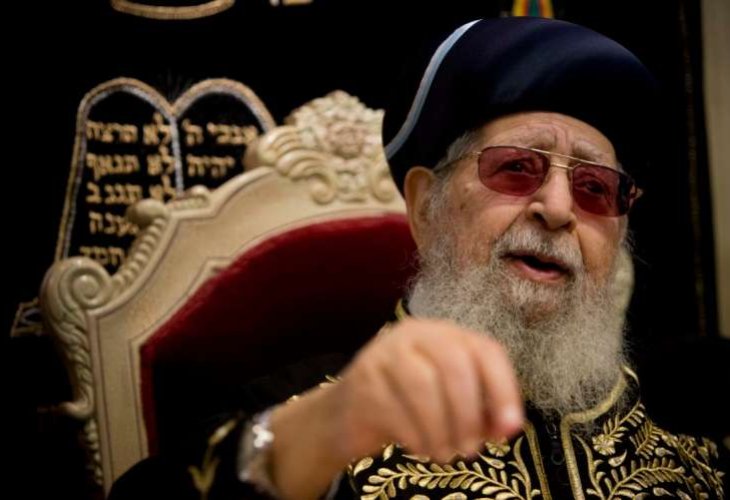Between the Straits
When Tisha b'Av Falls on Shabbat: Mourning Customs on the Tenth of Av
Tisha b'Av is the day on which both Holy Temples were destroyed. However, since the Beit Hamikdash burned throughout the next day, we continue mourning then too
 (Illustration photo: Flash 90/Jonathan Sindel)
(Illustration photo: Flash 90/Jonathan Sindel)Tisha b’Av — the fast day on the 9th of the month of Av — commemorates the destruction of the Beit Hamikdash (both the first and second Holy Temples). However, during years when it coincides with Shabbat, the fast is pushed off by one day and observed instead on Sunday, the 10th of Av. (This also applies to other public fast days with the exception of Yom Kippur, which is observed on Shabbat if it falls out then. Otherwise, it is forbidden to fast on Shabbat.)
Pushing off the fast to the 10th of Av raises a halachic question, as many mourning customs associated with Tisha b’Av and the preceding days and weeks are normally extended into the 10th of Av. Why? This is because the Temple was set alight on the 9th of Av in the afternoon hours; most of the destruction, however, actually took place on the following day.
Let’s walk through the background and practical rulings.
Why Is the 10th of Av Significant?
Chazal (the Talmudic Sages) teach that although the Beit Hamikdash was set on fire late in the day on Tisha b’Av, the entire structure was only destroyed on the 10th. Rabbi Yochanan, one of the Sages, said that if he had been alive at the time the fast was established, he would have chosen the 10th of Av instead of the 9th to mark the destruction.
However, the fast was ultimately established on the 9th, as it was then that the tragedy began, and the beginning-date of calamity carries great weight in halachah (Jewish law).
What Happens at the End of a Regular Tisha b’Av?
In a typical year (when Tisha b’Av falls on a weekday), some mourning practices continue into the 10th:
Ashkenazim generally refrain from eating meat or drinking wine until halachic midday on the 10th.
Sephardim tend to be stricter, avoiding meat and wine for the entire 10th of Av.
When it comes to laundry and haircuts, the reverse is true: Ashkenazim refrain until midday, while Sephardim are lenient and resume these activities as soon as the fast ends.
But What About When Tisha b’Av Is Delayed?
In a year when the 9th of Av falls on Shabbat, the fast is postponed to Sunday the 10th.
Ashkenazi Custom:
Several prominent halachic authorities rule that we should still refrain from eating meat or drinking wine on Sunday night, after the fast ends, even though it is already the 11th of Av. However, washing laundry is permitted immediately after nightfall.
Sephardi Custom:
Rabbi Chaim Vital, a leading Sephardi sage and disciple of the Arizal, ruled that one may eat meat and drink wine as soon as the fast ends in such a year. Rabbi Ovadia Yosef also ruled this way, explaining that once the fast concludes, the mourning period of the Three Weeks is over, and there’s no reason to extend it into the night of the 11th of Av.

